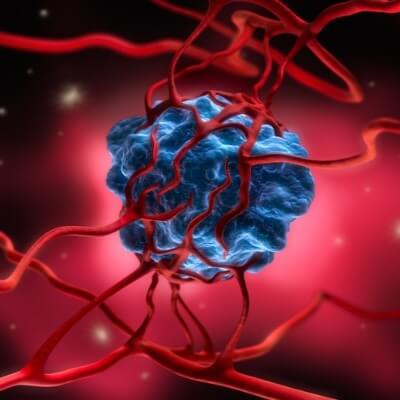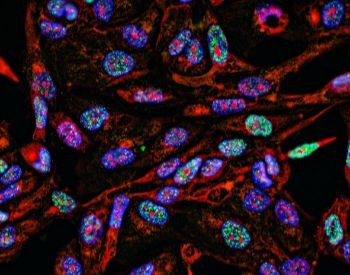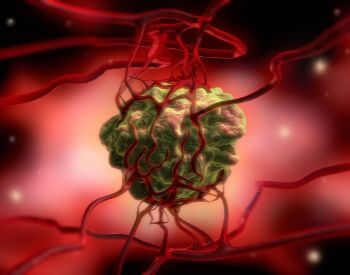
- Disease Group: Cancer
- Discovered: 1600 BCE as Described by Egyptian Edwin Smith Papyrus
- Total Types of Cancer: 120+
- Disease Description: Abnormal Growth of Cells
- Risk Factors: Genetics, Smoking, Alcohol and Many Others
- Treatment Methods: Chemotherapy, Radiation Therapy, and Many Others
29 Cancer Facts for Kids
- Cancer is a term used to describe a group of diseases that cause abnormal cell growth in the human body.
- Cancer is caused by normal cells transforming into tumor cells.
- The most common cancer cases are detected in the lungs, breasts, colon, rectum, prostate skin and stomach.
- The most common cancer cases that result in the highest death totals are lung cancer, colorectal cancer, stomach cancer, liver cancer and breast cancer.
- Cancer is caused by a combination of genetic factors and one of three external agents.
- The three external agents that could cause cancer are biological, chemical and physical carcinogens.
- An example of a biological carcinogen is a virus, like the HPV virus, which can cause cervical cancer.
- An example of a chemical carcinogen is tobacco smoke, which can cause lung cancer.
- An example of a physical carcinogen is ultraviolet rays from the sun, which can cause skin cancer.
- There are 4 major factors that can cause cancer are alcohol use, physical inactivity, tobacco use, unhealthy diet.
- When someone is diagnosed with cancer, it’s graded using one of five cancer stages. Each cancer stage represents how advanced the cancer is in their body.
- Stage 0 cancer is diagnosed when abnormal cells are detected and can become cancerous.
- Stage 1 cancer is diagnosed when the cancer remains small and localized in one area.
- Stage 2 cancer is diagnosed when the cancer has spread to nearby tissue and maybe one or two lymph nodes.
- Stage 3 cancer is diagnosed when the cancer has spread to nearby tissue, lymph nodes and organs.
- Stage 4 cancer is diagnosed when the cancer has metastasized and spread throughout the body.
- There are several different treatment methods for cancer. The type of treatment used depends on the form of cancer and what stage its at. Common cancer treatments include surgery, radiation therapy and chemotherapy.
- According to the Global Cancer Observatory, there were more than 17 million new cancer cases in 2018.
- Based on data from the Global Cancer Observatory, lung cancer cases reached almost 2.1 million cases worldwide, making it the most common form of cancer in 2018.
- Based on data from the Global Cancer Observatory, the top three types of cancer to affect men were lung cancer (1.36 million cases), prostate cancer (1.27 million cases) and colorectal cancer (1 million cases) in 2018.
- Based on data from the Global Cancer Observatory, the top three types of cancer to affect women were breast cancer (2 million cases), colorectal cancer (796,000 cases) and lung cancer (725,352 cases) in 2018.
- Cancer was the second leading cause of death worldwide in 2018 based on World Health Organization data.
- In 2018, lung cancer killed around 1.76 million people worldwide (WHO, 2018 data).
- In 2018, colorectal cancer killed around 862,000 people worldwide (WHO, 2018 data).
- In 2018, stomach cancer killed around 783,000 people worldwide (WHO, 2018 data).
- In 2018, liver cancer killed around 782,000 people worldwide (WHO, 2018 data).
- In 2018, breast cancer killed around 627,000 people worldwide (WHO, 2018 data).
- The field of medicine dedicated to cancer is oncology.
- A medical professional who practices in oncology is called an oncologist.
Pictures Related to Cancer

A picture of cancer cells glowing under a microscope.

A picture of a cancer cell in the bloodstream.

A picture of a cancer cell and some blood veins.
Additional Resources on Cancer
- Cancer Basics – Learn about the basics of cancer on the American Cancer Society website.
- Types of Cancer – Discover the different types of cancer on the U.S. National Cancer Institute website.
- Cancer Treatments – Find the different types of treatments for cancer on the U.S. CDC website.
- Cancer – Wikipedia – Read more about cancer on the Wikipedia website.
